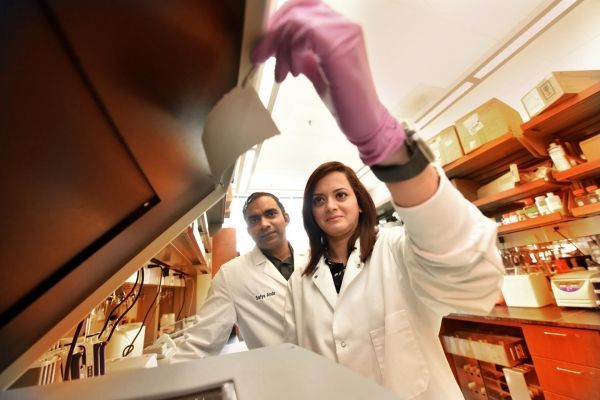An enzyme induced by stress to help reduce production of damaging free radicals is also used by liver cancer to regulate two major cell proliferation pathways that enable the cancer to thrive, scientists report.
They’ve also found that when they block the enzyme Nqo1, it dramatically reduces the proliferation of liver cancer cells, a hallmark of cancer’s ability to survive and thrive, they report in the journal HEPATOLOGY.
Nqo1 is highly expressed in both their mouse model of liver cancer and in human liver cancer, where scientists at the Georgia Cancer Center and Medical College of Georgia at Augusta University have found it acts upstream to activate the PI3K/Akt and MAPK/ERK pathways.
Both pathways are key to enabling the metabolic reprogramming that enables cancer cells’ super-efficient use of glucose as fuel and ultimately their rapid replication.
Read more at Medical College of Georgia at Augusta University
Image: Dr. Satya Ande, molecular biologist in the MCG Department of Biochemistry and Molecular Biology and Georgia Cancer Center and MCG postdoctoral fellow, Dr. Manali Dimri in the Georgia Cancer Center lab. (Credit: Phil Jones, Senior Photographer, Augusta University)


